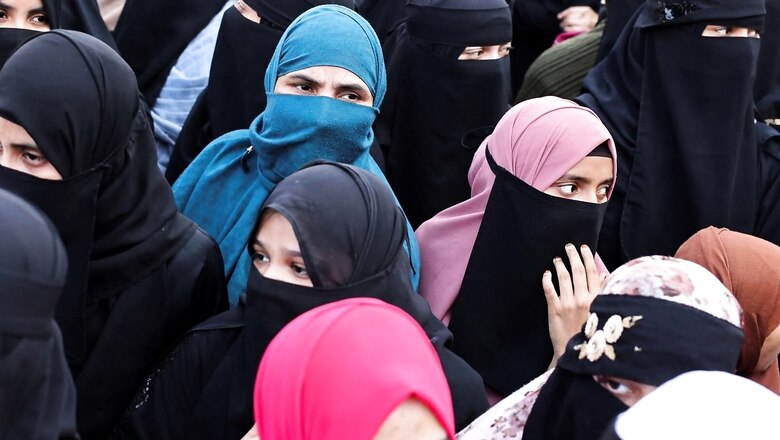
views
The hijab controversy was heard in the Karnataka High Court on Friday again during which the state government contended that the hijab isn’t an essential religious practice of Islam and preventing its use won’t violate Article 25 of the Constitution, which guarantees religious freedom.
Appearing for the state dispensation, Advocate General of Karnataka Prabhuling Navadgi told the high court the claim that the government order discriminates against Muslim women has a communal basis, all of which is absolute without any basis. The government order on February 5 had barred students from wearing hijab or saffron scarves.
“We have taken a stand that wearing hijab is not an essential religious part of Islam,” the AG told the full bench of the High Court comprising Justice Ritu Raj Awasthi, Justice J M Khazi and Justice Krishna M Dixit.
Navadgi also dismissed the charge of some Muslim girls that the order violated Article 25. He contended that the February 5 order of the state government was in accordance with the law and there was nothing to object in it.
The state government also submitted that the practice of hijab must pass the test of constitutional morality and individual dignity as expounded by the Supreme Court in the Sabarimala and Shayara Bano (Triple Talaq) case.
Navadgi further told the HC that the government order also does not violate Article 19(1)(a) of the Constitution, which guarantees to all its citizens the right to freedom of speech and expression.
The HC has adjourned the hearing till Monday.
The High Court, in its interim order pending consideration of all petitions related to the hijab row, last week restrained all the students from wearing saffron shawls, scarves, hijab and any religious flag within the classroom.
The hijab row flared up in the state in the last week of December after some hijab-clad schoolgirls were denied entry from entering college, prompting massive protests in the state.
The state government had earlier this month invoked the Karnataka Education Act, forbidding on educational campuses any piece of cloth that affects harmony, equality and public.
In the wake of the controversy, the state government has clamped prohibitory orders under section 144 in several cities and districts, including Bengaluru, Tumakuru, Koppal, Davangere and Ramanagara. The orders remained enforced in close vicinity of pre-university and degree colleges to prevent violence around educational campuses.
(With PTI inputs)
Read all the Latest News India and Breaking News here


















Comments
0 comment